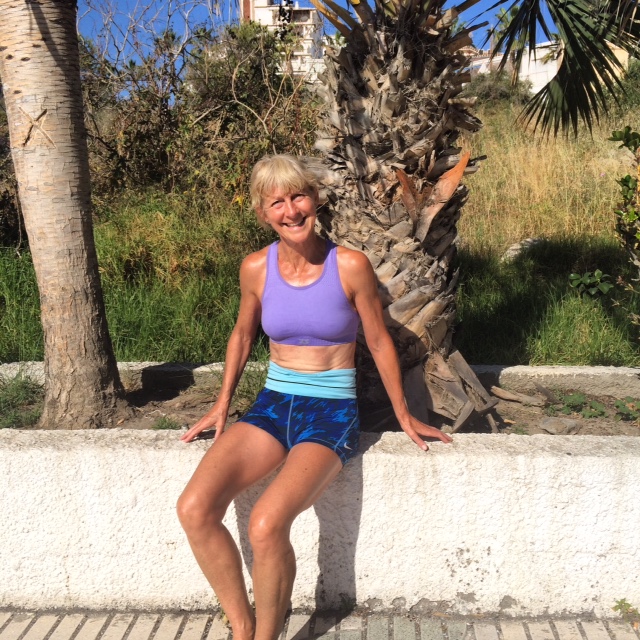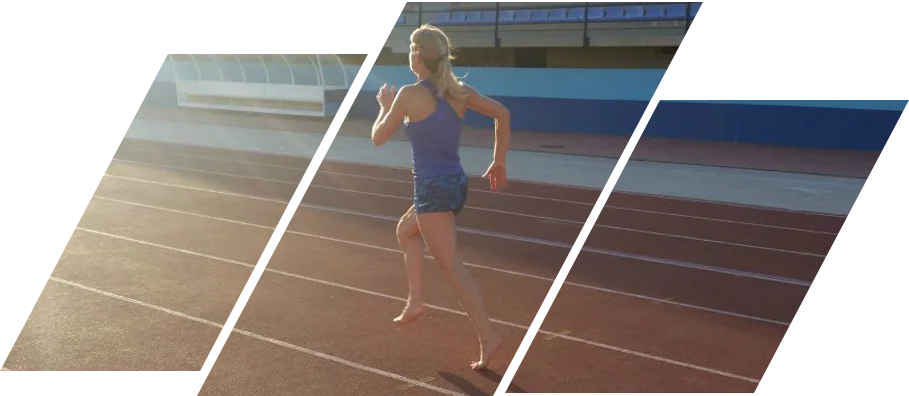This is a subject I know rather a lot about!
In a competitive running career spanning 43 years it is something I am very familiar with; and the fact I am still running and still aspiring to compete points to the fact that I have uncovered some strategies that have helped me both deal with injury, be with injury and then return to running again.
These three stages are important to recognise.
Because, even though injury has the potential to offer us some insights into our sport and how to look after ourselves, how to train optimally and ensure top performances in the competitions we are aiming for.
When it initially happens it is rarely welcome, often literally stopping us in the tracks to our goal, our dream, even taking away our very raison d’etre.
I have been stopped by injury during actual competition and in the lead up to it; and both are very traumatic experiences.

Julia Chi
Like any disappointment, it is vital to honour and acknowledge the disappointment, upset, fury, distress, anger. Whatever emotion arises…
The only way to let anything go is to fully recognise it is occurring; and the only way to move to the next stage is to let go of all the emotion, really feel it and heal it within.
It is only once the tension and disappointment is acknowledged and released that we can move to the stage of ‘rest is best’ and ‘rest don’t test’!
If the injury has not been acknowledged and the imagined future grieved, then the situation very common amongst many sports people is that not enough recovery time is given.
The natural state of the body is to be healthy, it wants to heal; but we must help it and not rush the process… If training is embarked on too soon, it isn’t uncommon to get injured again quite quickly, or to sustain another injury because the body is moving in a slightly unbalanced way.
So, once the grieving and acknowledgement of the situation has occurred; then it is time to be with the process and to learn from what has happened.
Getting a support team around you is important, and advice and treatment from a good body work therapist is a very wise step. Someone who can help you establish the weak links in the body; uncover what needs strengthening or stretching and give you tools to help yourself, as well as the immediate treatments they can give you.
The most important thing is to recognise that the body is speaking to you, and to listen to its messages.
Where do you need to focus, both in physical terms and emotional terms?
Are you putting yourself under too much pressure mentally and emotionally, as well as physically?
Are you trying to do something without the lifestyle to support it? Are you getting enough sleep, good nutrition?
Are you training too hard? Are you neglecting strength and conditioning training? Are you supple enough?
A ‘time out’ with injury can be the space to review, to uncover hidden fears and tensions… Maybe the pressure of what you are aiming for is too much and the injury has ironically given you a way out?
The deeper emotional aspects to injury is a subject for another article; but it is worth taking into account in the space while injured to reflect, re-group, recover and rejuvenate.
And then, comes the time to return from injury.
Gently gently. Build up slowly, listen to the body.
Make sure the next goal is a way off to ensure that the return is not rushed.
A goal ahead can serve to inspire the process; but it is important it doesn’t put any pressure on the time scale.
It isn’t uncommon for the injured part of the body to hurt a bit in the early stages of movement, but it is a different sort of pain to the injury pain; it is a ‘getting stronger’ pain, a ‘stretching ‘ pain a ‘building up’ pain not a ‘breaking down’ pain and it gets better not worse as you train!
Make certain that you have in place ongoing support, that you do the exercises that have been suggested and that you take the necessary time to build up.
Of course monitoring your training loads with GPS and Heart rate devices will ensure that you build up, and don’t break down again…
Listen to your body, be kind to it and it is capable of amazing things.
You can come back to competition stronger than before if you apply yourself wisely.
I have returned from so many injuries! If I were to list them here, it would be a long list!
But over the years I have learnt how to balance my body and heal it at a deep level, so that I am in my late fifties feeling like a teenager!

Julia Chi Taylor
Contributor
Julia is an ex international distance runner.
In the late 70's all through the 80's and into the early 90's she competed regularly for England and GB at distances from 5k to Marathon. Some of her best performances include winning the 1985 Dublin Marathon and finishing 7th woman (3rd British woman) in the 1986 London Marathon in a time of 2.36.31 where she was selected to run in the Commonwealth Games.
She still competes now as a master over 55, regularly winning her age group in races around the world. She's was also part of the winning team for the national master X country championships in March 2016. Julia has coached and mentored others to achieve their dreams in sport and life for the past forty years!
Read about her barefoot adventures: www.SolesJourney.com
Watch Julia chart her barefoot journey all over the world: Soles Journey - YouTube Channel
Julia's Books:
Girlfriend For A Year
Running To Learn
Running Sussed

